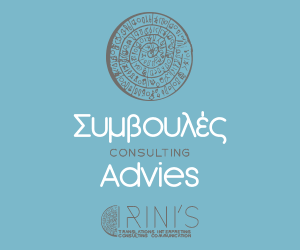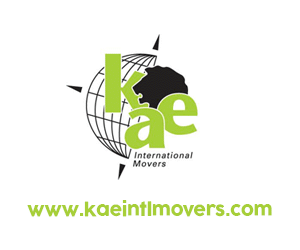This post is also available in Greek
Children in the Netherlands are healthier and happier than any other country in the world, according to the latest edition from Unicef’s league table. The Dutch ranked 1st in 3 out of 5 categories for the measurement of child welfare: material well-being, education, behaviour and risks. This is also one of the reasons quite a lot of Greek parents decide to move their families here.
Until you live in the Netherlands, you can't understand it, but in time you realize that the whole country is filled with luscious green parks, playgrounds, pretty little schools, ice cream trucks that play music around the neighbourhood, clean spaces and all perfect for the children.
The biggest questions that most parents face when they move to the Netherlands, is which education system is the most appropriate, in which language their children will be taught in (very important) but also if the school will be organized and ready in such a manner that their child will be soon used to the new reality surrounding it.
Parents are aware, better than most other people, that a child' s mind is like a sponge. A child can be taught Dutch in school, Greek at home and if able you can even organize its schedule so that your child doesn’ t miss the much needed daily play time. You can even start considering English as well.
Which school is for my child?
The criteria which you can choose a school are for starters, if your child fits in that school and if it can handle the educational system the school practices.
In the Netherlands you don’t have many options as far as language goes in comparison with other European countries. There is a choice between Dutch schools, where the course language is in Dutch of course and the option of international schools, that are usually in English and are prefered by those not planning on staying for ever in the Netherlands.
The International schools in the entire country of the Netherlands, that your children can attend, are just a few, compared with Belgium and Germany, where you can find quite more and more organized. Unfortunately in the Netherlands, your child will have to start attending school at a Dutch school at any age.
If someone takes a look at the allocation of nationalities, the percentage of West Europeans that send their children to Dutch schools is very low. That drives many parents into being afraid about their child having to attend a Dutch school that has no experience in handling foreign speaking children. Thinking that probably in an International European school their child will learn Dutch, English, while Greek can be taught either in school, that is an actual future possibility for the International School of Den Hague, or with a tutor at home or even just by practising it within the family.
In the case that you choose the Dutch as your solution we have some good news for you. In the Netherlands there is a way to take advantage of the Dutch Government's organization and take a look at an in depth analysis of any Dutch school from the Ministry of Education at tkrtp.owinsp.nl, where analytical reports of the strict state evaluation of each school are available. The Minsitry of Education has also a database with various statistical figures related to Dutch schools - for example a very interesting statistic is especially the allocation of students based on nationality and other useful information, so that you can have a better idea of what the school you pick is available at 10000scholen.nl.
If your child is up to 4 years of age, it would be ideal to attend a Dutch creche and from 4 years old and onwards, it would be a great move to send it to a Dutch school in order to learn the language fast and also socialize. In any way, after 5 years of age, education becomes compulsory in the Netherlands. It would be prudent, before the first school contact, to get some Dutch language lessons for your child at home, so that the first day at school is not overwhelming.
If your child is older, then the situation doesn’t differ much. Children will need to spend some time with Dutch language intensive courses and later on take a test in order to evaluate if they can continue their studies. Education in the Netherlands is almost free. There are always subscriptions, depending on income, which are used for school excursions or other school activities. There are also semi-private Dutch schools such as bilingual (English-Dutch) which have a fee.
The International School of The Hague ishthehague.nl is a highly accredited and recognized primary school, namely the first school in the world to receive accreditation at 'Mastering' level from the International Primary Curriculum. From September 2012, the European School of The Hague europeanschoolthehague.nl/" opened its gates to students, giving the Netherlands a second European School (wikipedia.org/wiki/European_Schools) (after the one in Bergen). The European School is a type II European School (http://www.eursc.eu/)" is a run by the same state Organization as the International School (Rijnlands Lyceum) which means in practice that both schools are private Dutch schools, although both highly accredited. One has to although to know, that in order to have a guaranteed acceptance in the European School, at least one of the parents has to be employed in an International or European Organization in the Hague. There are, although, some places available to other students.
The yearly fees are approximately 6.000 € - to 7.000 € for Primary school. There are also the British school and the American school which have higher fees at 13.000 € - 15.000 €. The degree that a graduate gets from the International school is the International Baccalaureate, and the European school awards the European Baccalaureate. Degrees from other private schools vary depending on the school (e.g. pupils from the British School get A-levels or International Baccalaureate).
The European school of Bergen
The European school of Bergen is a different type of institution which has been created for children with Expat parents. It operates under the sponsorship of the EU and it was created to host the children of EU research center’s employees. It is located 45 Km North of Amsterdam and it has good means of transportation in order for a visit.
You can also see more about it on their official website
The International School of The Hague (ISH) Primary and Secondary Schools
The International School of The Hague aims to provide high quality primary and secondary education for students of all nationalities. The school encourages and supports its students in all areas of their work and development.
For more information you can visit the official website of International School of The Hague
European School of The Hague / Het Rijnlands Lyceum
European School of The Hague, opened on September 2012. Pupils can be admitted to the school from the moment that they are four years old and at least one of the parents has to be employed in an International or European Organization in the Hague. The school has three language sections: Dutch, English and Spanish and the pupils are placed in the section of their mother tongue or dominant language (first language). Students with a mother tongue not corresponding with the language of an existing section at the school, will be enrolled in the English or Dutch language section.
The good thing with this school is that if at least 5 kids register and get interested in two consecutive years, they will put also Greek language courses. If you haven’t decided yet which school you will use, consider also this solution. There are already parents who are interested.
For more information you can visit the official website of European School The Hague / Het Rijnlands Lyceum
Greek education in the Netherlands
Unfortunately in the whole of the Netherlands there are only Greek Language Classes that you can enroll your child if you want to keep a strong sense of the Greek language and tradition, especially in cases that your other half doesn’t speak Greek and the language you use at home is different.
What are the Greek schools (Greek Language Classes) in the Netherlands
The Greek school Athena is located in Amstelveen, Amsterdam and is for children ages 4 to 16 years old. It has a kindergarden, elementary school and a gymnasium. The goal of the school is to get Greek children in touch with the Greek language and culture.
The school operates for 9 hours and only on Saturdays (3 groups x 3 hours), so that the children can attend their daily courses in Dutch or International schools.
There are three classes operating and the children are divided according their ages and their interests.
The Athena Greek school however, besides the children's classes, was always a meeting point for Greek parents, that many times living away from urban centers, don’t have the chance to speak their native language. Here they have the chance to meet and talk with other Greek parents and exchange opinions for the three hours that their children are in class.
If you would like to learn more don’t hesitate to go by Amstelveen and chat with other parents, which have useful and valuable information for all newcomer parents. Also, if you truly love children and wouldn’t mind giving up some of your precious saturday time, you can always volunteer and participate in the schools saturday activities.
There is a subscription fee for the school which is valuable because it helps pay the rent and service costs for the school. The Greek government is covering the costs of the teachers.
For more information you can visit the school’s website: www.griekseschoolamsterdam.nl
Another Greek school is located in Utrecht and is named Odysseas. You can get all needed information if you visit there and you can also find more on the schools website: www.griekseschoolutrecht.nl
In Rotterdam you can also find a Greek Language School. It operates in the same fashion, split in groups and its goal is to preserve and stimulate national, religious and folk traditions of Greek culture and stimulate the use of Greek language among young Greek. For more information you can visit the school's website: www.elsr.nl
There are also Greek Language lessons for children, kindergarten, elementary and secondary school, in The Hague. You can get the information you need from the site of the Greek Embassy greekconsulatenl or from the website of the school ΤΕΓ Χάγης - grschool.nl
What can I do if I don’t live near a central urban area
If you move to a place where there is no Greek school you could always hire a teacher. There are many capable teachers and educators that could teach the basics to your children. After that, it is up to you how much you can help out. You could even start a team with other Greek parents and hire more teachers or start a group.
For any questions about school choices or if your child is going to fit in this new environment, you can always consult other Greek parents that were faced with the same questions in the past or visit a school or your local city hall. If you think you aren’t getting the information you need, you can always come by Amsterdam one Saturday and talk with the parents that are always there socializing and waiting to pick up their kids after class.
Always remember that the Netherlands wants the best for your child and if you also want the same, then everything will be ok.











